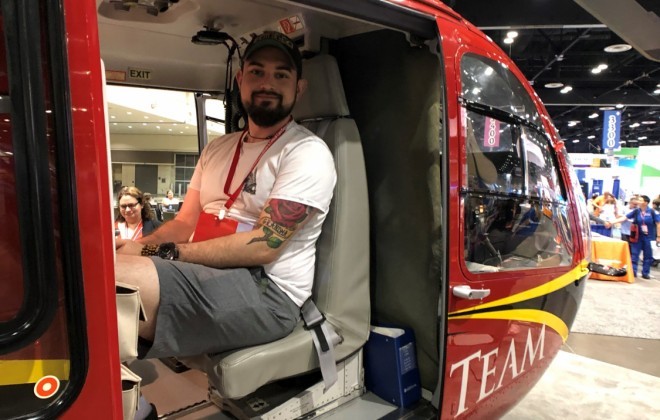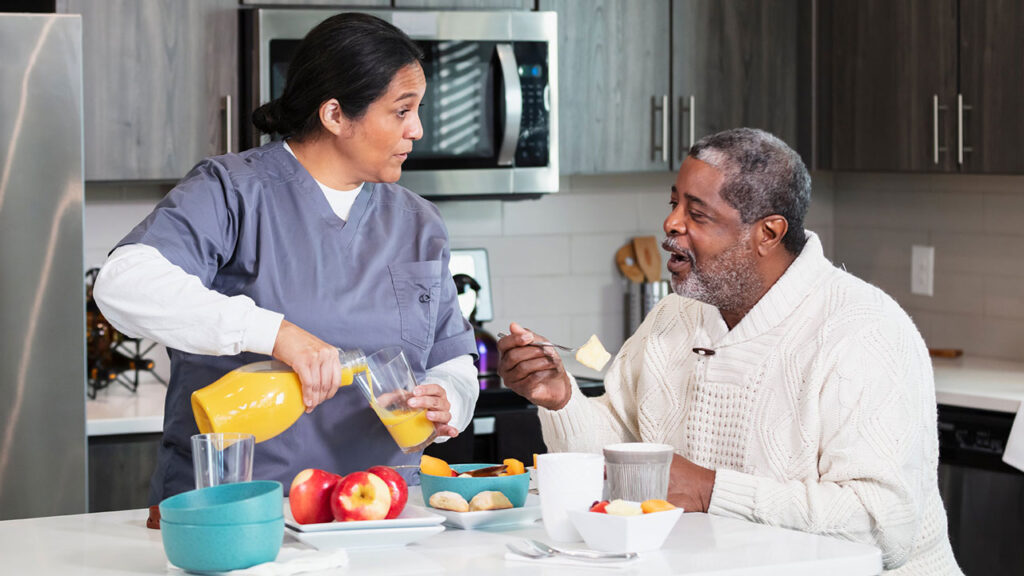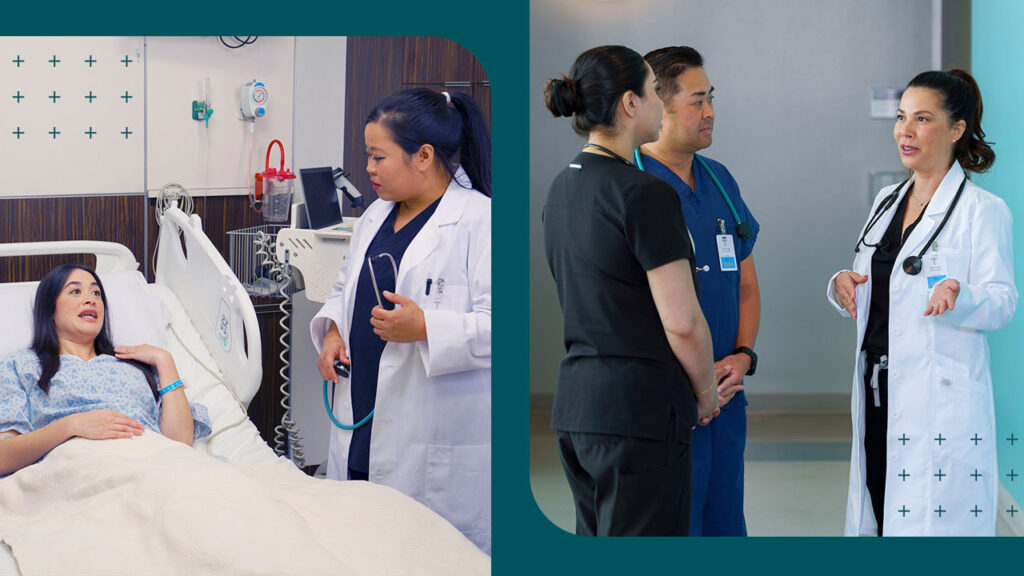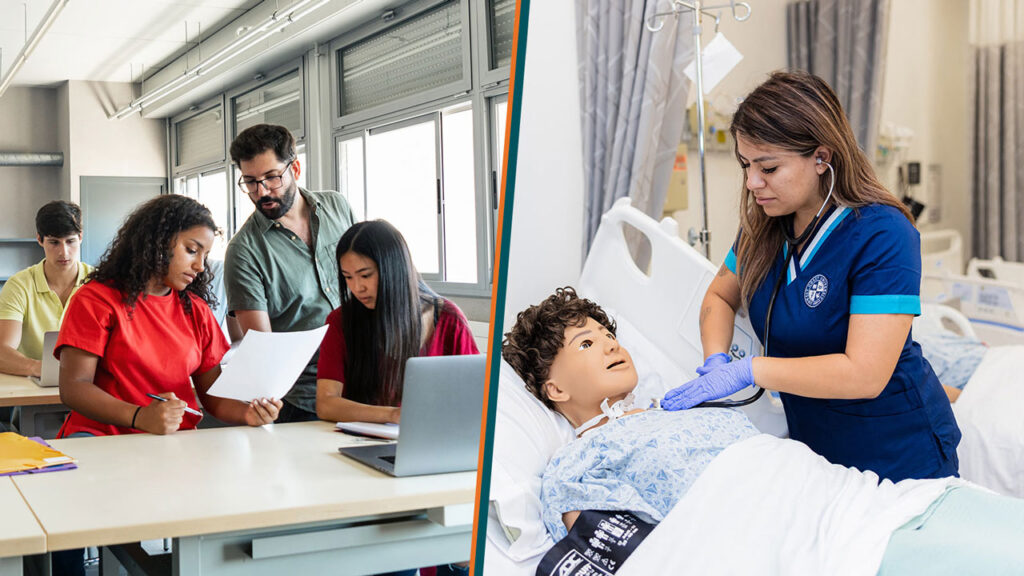Ten years ago, John Kasey walked into the ER as a new EMT to find that the patient he was meant to pick up was going to be transported via helicopter instead. Since he didn’t have any other calls, he decided to stay and watch the procedure.
“The helicopter landed, and the flight nurse got out,” John said while recalling the experience. “The doctor is like, ‘I don’t know what to do’ and the nurse is like, ‘we’re going to do this, this, and this.’ And that was a moment where I said, ‘I want to be that guy.’”
Jonathan’s nursing dream was solidified, but without the means to pay for school, he didn’t enroll in a program until four years later. He chose West Coast University-Ontario because the curriculum included the prerequisites he needed to begin core nursing classes — some of which he was having a hard time finding at community college.
Yet, even after taking the plunge and pursuing nursing, his financial issues did not make it easy for John to focus on his studies. “I was homeless for a time. I couldn’t afford the gas. I was working five jobs at one point just to survive, and I was trying to support my grandmother.”
In the end, John managed to make it through with some financial aid and the help of his family. “I had financial aid for through the first year and a half. I got denied my second loan, but I ended up getting one of the scholarships to get through the rest of the program.” His family, meanwhile, helped cover some of his living expenses, making it possible for him to complete his studies and graduate in 2017.
On May 17, 2021, he started his first job as a flight nurse.
What was your nursing journey after you passed your NCLEX?
I worked in home health for three or four months. I enjoyed it for a month or two, and then I needed to do something different. It wasn’t what I wanted to do.
I got a job at an ER and that was closer to what I wanted. It was at Hoag Newport, a very nice hospital. The team was very good. It was a great place to get my bearings and learn the right way to do things.
As soon as I became eligible, I started working two full-time jobs. I went to Hemet Emergency Department. It’s a rural area. The closest trauma center is 30 minutes away — so we got a lot of stuff where people just came in. We had people with knives in them. Someone had a stroke in the parking lot. That hospital taught me how to keep patients alive.
After, I ended up applying to Scripps Encinitas, where I was doing emergency and ICU flow pool. I dedicated myself to doing everything I could. Every time an educational opportunity came up, I took it. I signed up for everything I could. And then when the opportunity came up to start volunteering at the high-level ICUs, I took those opportunities.
What about your goal of becoming a flight nurse? When did you pursue that?
I ended up leaving Hoag and going down to UCSD. In three months, I was sitting in the MICN (Mobile Intensive Care Nurse) class, which was the last prerequisite I needed before taking my certified flight nurse exam. My grandma passed away during that time when I was transitioning between Hoag and UCSD, so it delayed it a little bit.
But I got it in February. At that point, I had just hit my three years. I take the exam, and I’m going to apply — and then the pandemic hit, so I put that off for a year.
What was your experience like travel nursing at the beginning of the pandemic?
I went out to New York for three months, came back for three weeks, went out to Texas for two months, came back, took three months off work, had a very small stint in Oregon — didn’t work out. I came back and then went to Sacramento for two months.
That is a lot. How was it working in New York?
I arrived two weeks before the peak. If there was something we could run out of, we ran out of it. We ran out of body bags. We ran out of clean sheets. We ran out of soap at one point. We ran out of ventilators. You’d have a patient dying and there would be someone outside waiting for them to die so they could grab the ventilator.
At the end of the day, you just do it. The same way I made it through school — just take it one minute at the time and you’ll make it to the next minute. There’s no preparation. There’s nothing you can do. You show up and you just do it.
After everything you’ve been through, what is your top advice for students in the nursing program?
Don’t be afraid to ask for help.
WCU provides career guidance and assistance but cannot guarantee employment. The views and opinions expressed are those of the individuals and do not necessarily reflect the beliefs or position of the school or of any instructor or student.



